In warmer climates, an air conditioning unit is absolutely essential. They are just as important as a heating system is in cooler climates, and they are absolutely vital if you want to be able to go about life like normal on a hot summer day.
Most of the time your AC unit will run without a problem, but sometimes they can experience issues. As fate would have it, it always seems that your AC unit begins to play up on the hottest day of the year and you are left struggling.
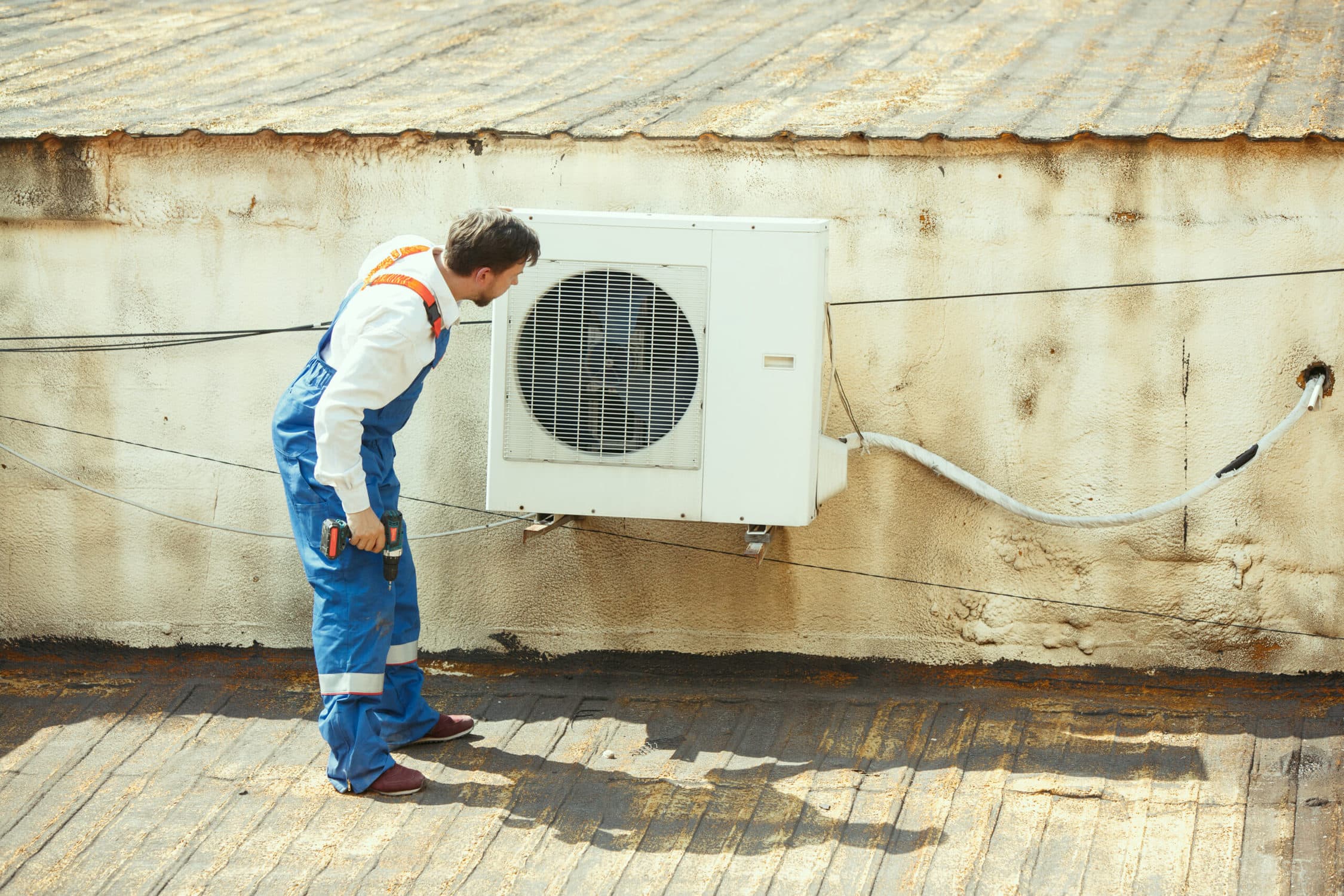
In this guide, we’re taking a look at one of the very common problems that people encounter with their AC unit, and that is when the air conditioner hums but refuses to start. So if you are experiencing this issue, keep on reading to find out what could be the cause and how to fix it.
Why Is My AC Unit Humming But Not Turning On?
You wake up one morning only to be faced with incredible humidity, your AC is not working. You drag yourself out of bed to try and find out what has happened to your air conditioning unit, only to find that it is humming but the fan isn’t spinning and the unit will not switch on.
This is not good news, but thankfully there is primarily only one cause that could be making your AC unit operate in this way. This cause is usually easy to identify, and as it is a common fault it is also easy to solve. The main thing that causes your AC unit to hum but not start is the capacitor.
If your capacitor is bad or faulty, it will prevent your AC from operating correctly. As we have said, this is an easy fix, but for you to be able to fix it, you first have to know what a capacitor is and what it does. So let’s take a look at the answer to these questions.
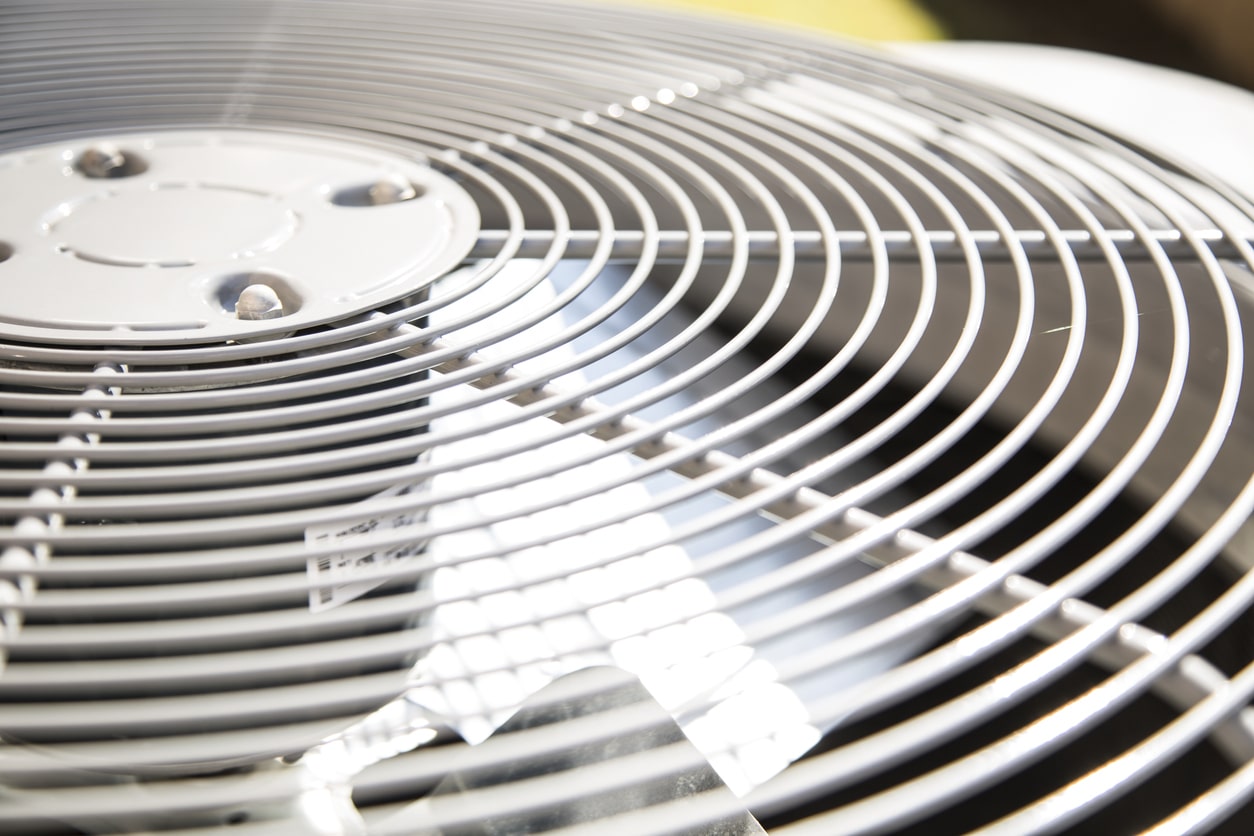
What is a Capacitor?
Before we explain how the capacitor can cause your air conditioner to experience this problem, let’s quickly take a look at what it is.
The capacitor is a central component in your air conditioner unit, and it is small and cylindrical. It is the capacitor’s job to store energy in the same way that a battery does, and because of this, the capacitor plays a central role in starting and maintaining the constant running of the AC.
The capacitor sends electrical jolts to the motor of the AC which triggers it to start and also causes it to continue to run. There are three main motors in an AC unit with which the capacitor interacts, these are the outdoor fan, the compressor, and the indoor blower fan.
Out of these motors, there is one which requires much more energy than the others, both to start running and maintain this. The motor which we are talking about is the outdoor fan, and this is the motor that is most commonly impacted by a bad capacitor.
If the capacitor is bad, the outdoor fan motor is the device that will notice this first as it requires the most power. So if the capacitor is bad, it is very unlikely that it will be able to generate the power to get the fan spinning, but it will be able to get the AC unit to hum.
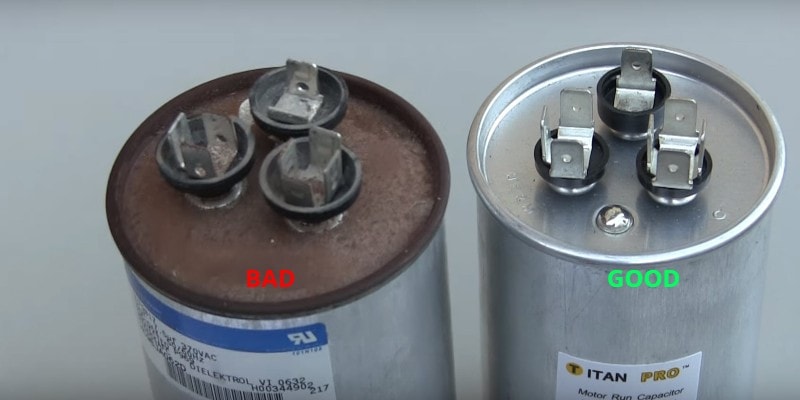
Testing Your Capacitor
Now that you know what a capacitor is and what it does, let’s take a look at how you can test this to see if it is the cause of the AC problems that you are experiencing. There are two ways that you can test your capacitor, so let’s take a look at what they are.
The first method requires you to use a long wooden stick to push through the fan grate and onto the fan blades. You should never use metal or your fingers to do this. With the wooden stick, you should push the blades of the fan to see if you can get the fan to start moving.
If the fan begins to spin on its own once you have jump-started it, then the issue must lie with your capacitor as you have done the job which the capacitor is supposed to do. If the fan does not start, then the issue must lie elsewhere. But more often than not it will begin to run by itself.
Alternatively, you can use this method to check your capacitor, but please note you will have to shut off the power supply to your AC unit before you do anything else. Please also note that you should never touch the capacitor’s terminals as these carry the energy and can be dangerous.
Once you have shut off the power supply to your air conditioning unit, you should then remove the service panel of the AC unit. With this removed, you should be able to spot the capacitor which is providing energy to the fan. Once you have located the capacitor, you can then give it a visual inspection to see what condition it is in.

The most common symptoms of a bad capacitor include swelling to the top of the capacitor, rust, and corrosion, or fluid leaking from the device. If your capacitor is experiencing any of these symptoms then it will likely require replacing.
Now, What?
After you have tested and inspected the capacitor, it is pretty easy to diagnose if this is causing the issue that your AC unit is experiencing. But what should you do once you identify this?
If you have identified that your capacitor is in bad condition, then you should turn off your AC unit immediately. Once you have done that you should then make contact with an air conditioner technician who will be able to diagnose this problem officially and replace your capacitor for you. This can be quickly replaced by a technician as this is a common problem in air conditioning units, but if you keep the unit running then there is the potential for the problem to become worse.
If you continue to run your AC unit even though you have identified that something is not working properly then this could potentially damage other components of the unit. A bad capacitor can strain the fan motor and can also cause the compressor to overheat, so it is best not to use your air conditioner until a technician can come out and replace the faulty capacitor.
Replacing the Capacitor
Earlier on we stated that replacing the capacitor is an easy job, but please note that this is only a simple job if you are a technician who specializes in air conditioning units. For a layman, replacing the capacitor is not only a tricky job, but it is also potentially very dangerous which is why it is best to leave this job to the professionals.
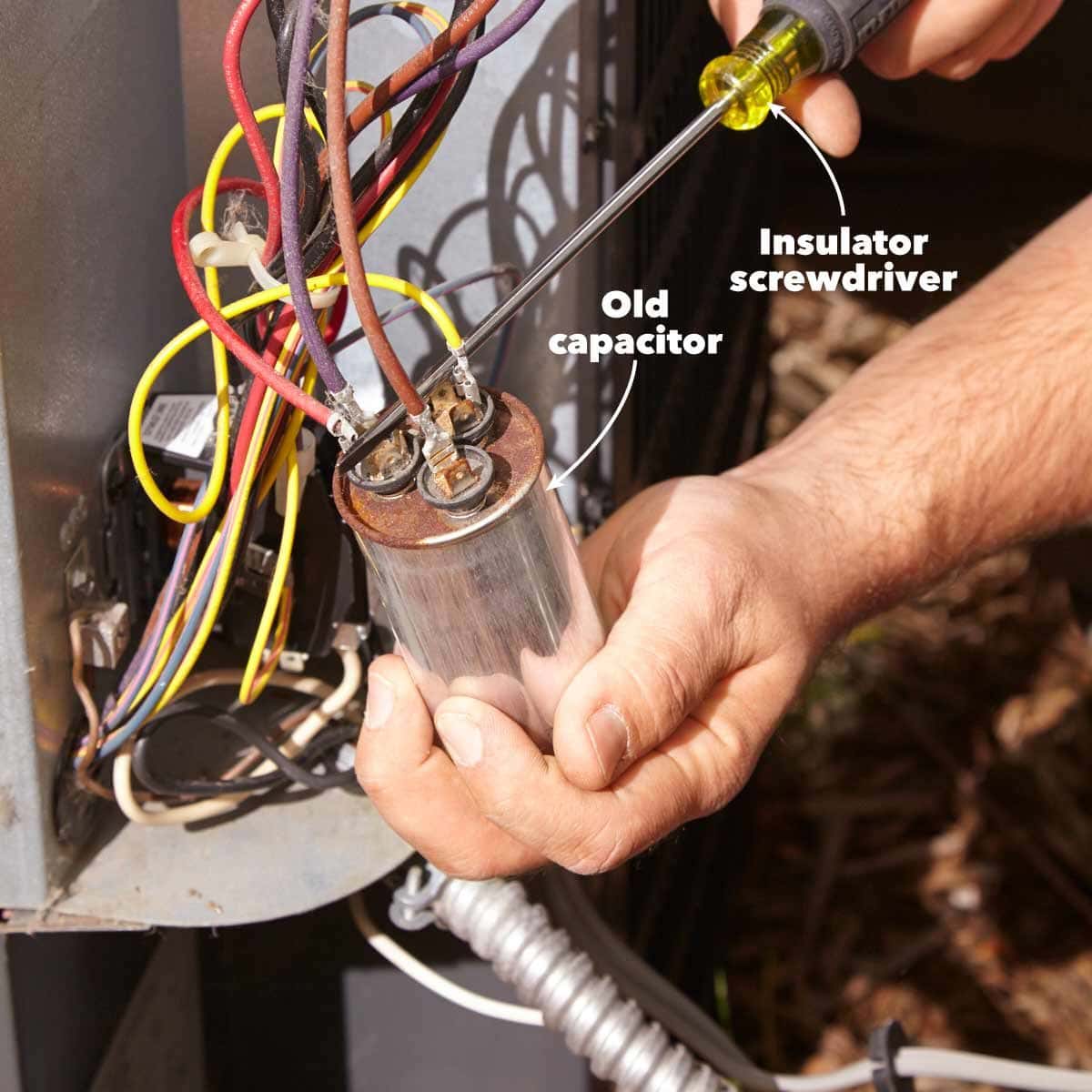
But that doesn’t mean that replacing the capacitor yourself is an impossible task, so if you have experience working with electrical components and AC units then you could do it yourself.
However, it is very important that you take all safety precautions possible as replacing the capacitor requires you to work with a high voltage which could result in serious injury if something goes wrong.
So unless you have electrical experience, we would recommend that you get in touch with an AC technician and request that they replace your capacitor. This will also allow you to get your AC unit checked over by a professional who will be able to notice if any other damage has been caused by the faulty capacitor.
What Makes It Go Bad?
As we have now established, the primary cause of your AC unit humming but not turning on is a bad capacitor. But what is it that causes the capacitor to go bad?
The most common cause of a capacitor going bad is simply wear and tear. Just like batteries, over time capacitors lose their ability to hold a full charge and because of this, they become unable to provide the necessary amount of power and energy to the various motors that they supply. Additionally, this wear and tear can be sped up by warm temperatures, and high voltage which can overwhelm the capacitor.
If your AC unit is older, then the chances are that at some point in its lifespan you will have to get the capacitor replaced. If you catch this problem early then the chances of your bad capacitor damaging any other components of your AC unit is slim.
This is why it is recommended that you get regular maintenance checks of your AC unit as it allows a technician to catch any potential problems early, and prevents these problems from causing irreversible damage to your unit. Regular maintenance checks also reduce the risk of you waking up one day to find that your AC isn’t working, so it is clear how important these checks can be.
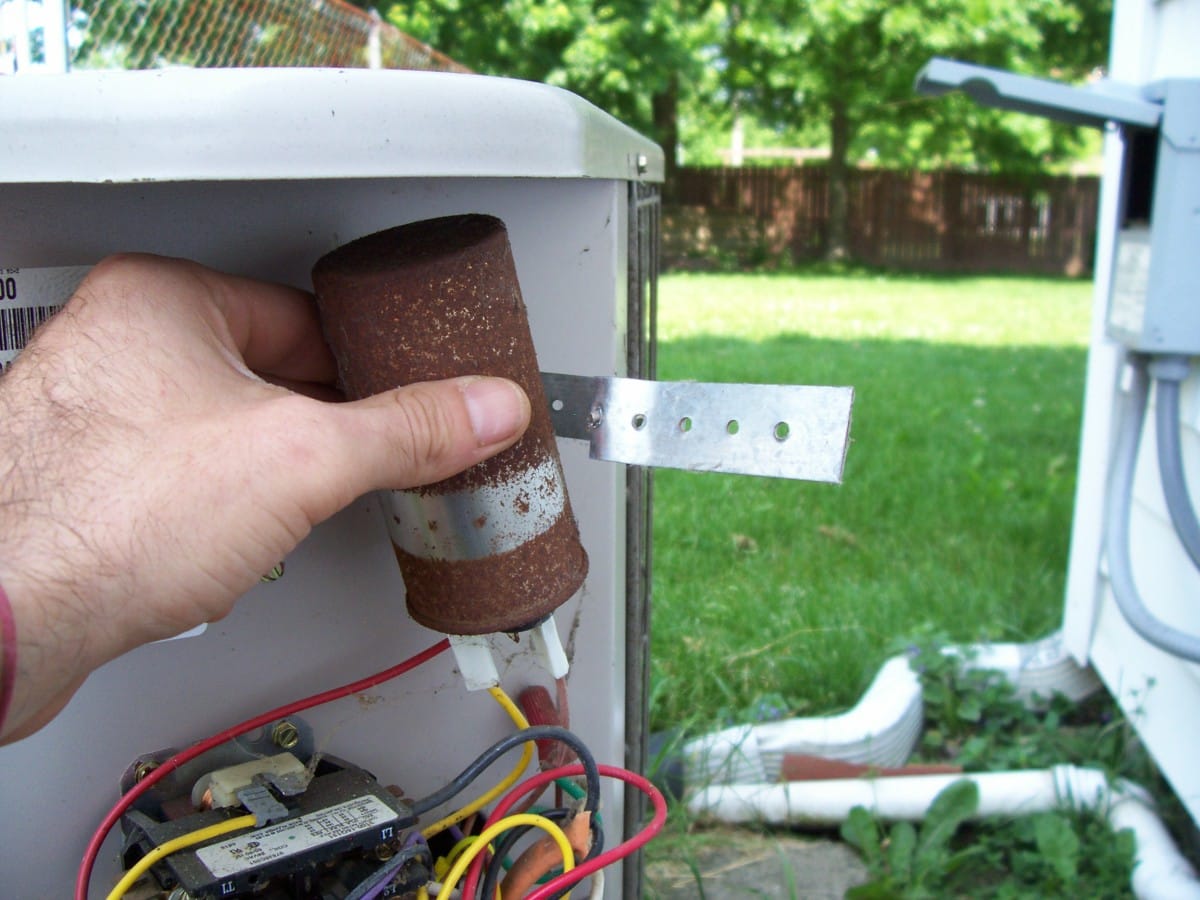
Summary
In short, the main cause of your AC unit humming but not turning on is that your capacitor is experiencing problems. You can diagnose this issue yourself but it is always best to call out a technician to replace your bad capacitor.
